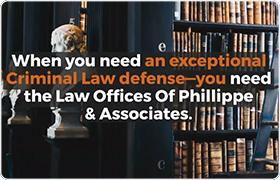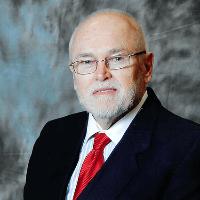Brownsville Misdemeanor Lawyer, Texas
Sponsored Law Firm
-
 x
x

Click For More Info:
-
The Law Office Christopher Phillippe
104 North Express Way Brownsville, TX 78521» view mapCriminal Defense Law Helping Those Facing Difficult Times
We are confident in our ability to resolve difficult legal issues, and we will use our years of experience to represent your best interests.
800-659-6781
Not enough matches for Brownsville Misdemeanor lawyer.
Below are all Brownsville Criminal lawyers.
Christopher Lee Phillippe
✓ VERIFIEDDivorce & Family Law, Bankruptcy & Debt, Estate, Criminal, Accident & Injury
Mr. Phillippe has been licensed to practice law in the state of Texas since 1983. He helps his clients with Family Law, Accident & Injury, Criminal, B... (more)
Albert Lee Rodriguez III
Criminal, Divorce & Family Law, Medical Products & Devices, Divorce
Status: In Good Standing
FREE CONSULTATION
CONTACTGary Armand Ortega
Immigration, Family Law, Criminal, Personal Injury
Status: In Good Standing Licensed: 36 Years
FREE CONSULTATION
CONTACTCarlos Hermenegildo Cisneros
Lawsuit & Dispute, Clean Air Practice, Criminal, Litigation
Status: In Good Standing Licensed: 29 Years
Robert Louis Guerra
Insurance, Litigation, Personal Injury, Criminal
Status: In Good Standing Licensed: 22 Years
Ediberto Jose Trevino
Public Utilities, Family Law, Criminal, Personal Injury, Immigration
Status: In Good Standing Licensed: 35 Years
Timothy Andrew Lopes
Defect and Lemon Law, Family Law, Criminal, Insurance
Status: In Good Standing Licensed: 18 Years
 Christopher Phillippe Brownsville, TX
Christopher Phillippe Brownsville, TX Practice AreasExpertise
Practice AreasExpertise

